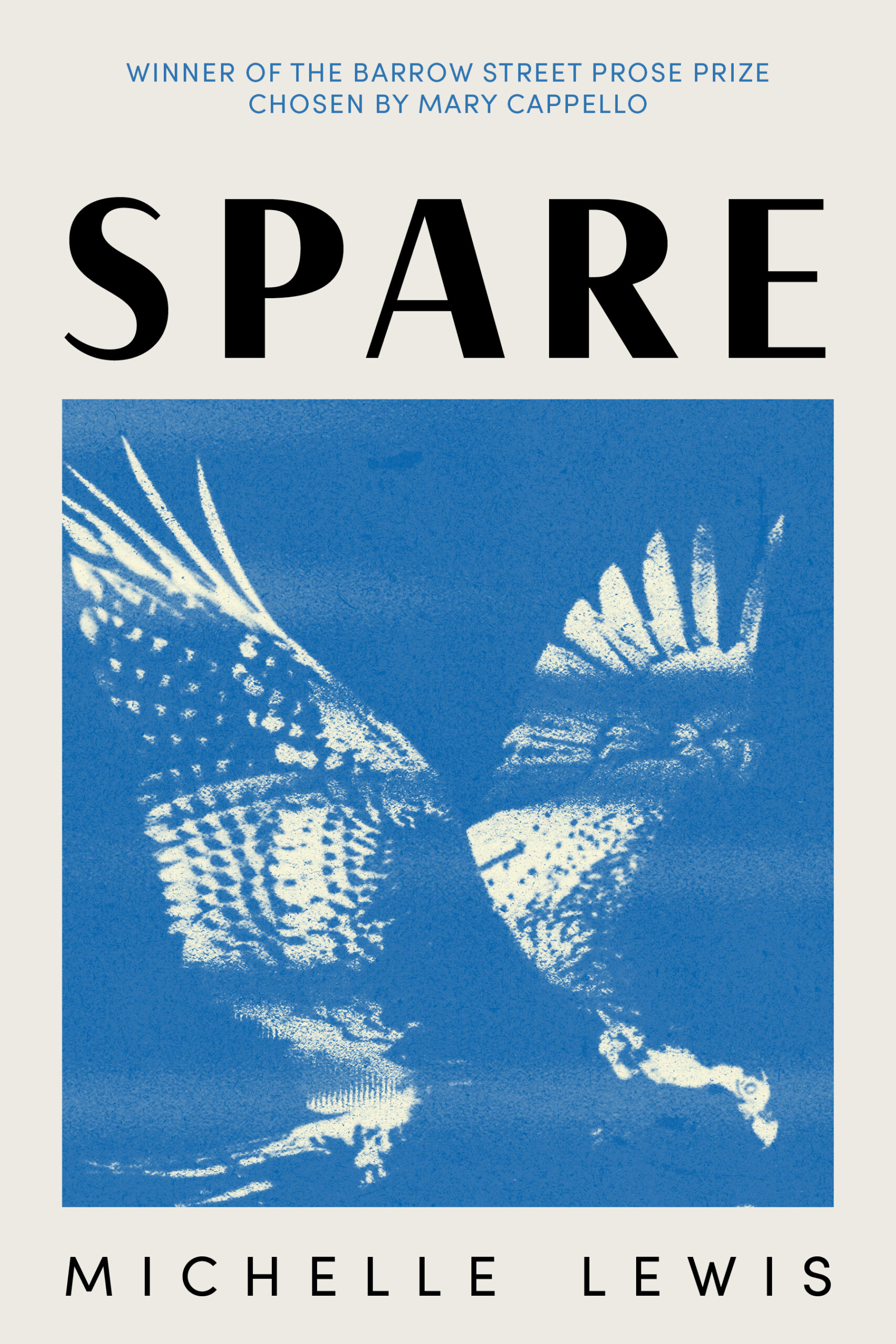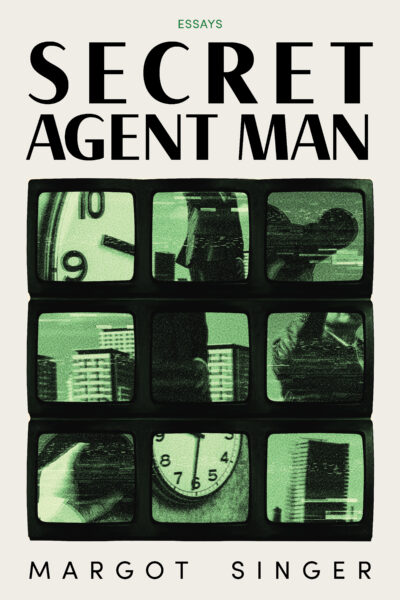Spare is a poetic memoir that weaves gripping personal history with present-day narrative. The text braids recurring epistolary sections, with the fate of a single character, and rediscovered correspondence. This finely tuned lyric memoir includes a meditation on the relationship between the history of eugenics in Maine with the region’s current drug epidemic. Internal dialogue considers complex themes of social accountability, privilege, prejudice, socio-economic class, family legacy, and the unreliability of truth. The book’s construction ranges from spare to expository, creating its own vocabulary and landscape, both pointillist painting and ballad, treasure hunt and riddle. This revelatory work is by turns mysterious, humorous, and heartbreaking.
Spare, Michelle Lewis
$20.00
ISBN: 9781962131056
Binding: Paperback
Published: April 15, 2025
I read Michelle Lewis’ Spare with a kind of awe and fascination for its arrival at the pared down and essential, its achievement of the hardest-thing-of-all in prose: the ability, and willingness, to cut through the dross and gift the reader the things we look for in great poetry. Breath. Space. Uncommon voice. Distillation. The play of meaning within a single term. How much can you “do without”? When “the bottom falls out,” what are you left with? How do you live? Spare traces a family’s, town’s, and region’s generations-long poverty and the violence of systems bent on naturalizing hardship. If no one is spared, Michelle Lewis arrives, at least, to write the truths back into history, to listen and to tell, in a prose that promises in its careful tracings to do no further harm. — Mary Cappello
Reading this marvelous grief song is like being a stone skipped across the surface of a twilight lake. But with your eyes wide open the whole way across. Smart, curious, empathic, expertly built, and open-hearted but never obvious, Spare is a kaleidoscope of a book that has no real forerunners that I can think of. And I’m not going to lie. This book is going to hurt you. But you’ll be glad it did. Anyone who cares about mothers, children, the accidents of fate, growing up hard in rural America, and lyric storytelling of the first order must put down their iPhone right now and read it. — Adrian Blevins
Lewis’s memoir is an elegant and elegiac seminar on class in America, and in her words, what it’s like to be poor in the poorest town in Maine…which is to say, far away from the forces that decide one’s fate and to live in a state (not just the state of Maine) but one of ambiguity. Her prose is sublime in detail and her story urgent. I am in awe. — Kerri Arsenault
Savings idled in cookie jars, somehow growing enough to pay for college for the brightest men. Count it as fortune. My grandmother was careful not to wear red when she walked past the neighborhood bull on her way to school. Later, houses built beneath the long shadow of the Shipyard. Pensions instead of social security checks. Time-and-a-half. A bitter ring around the collar. Long lines at the pay counter, unions, a spray of workers out at the 3:30 horn swinging dinner pails, each one blackety-black, the color of no one’s skin, at least for as far as you could see past the cranes that seemed to rise from the river over the pines that when the air is humid do not end as much as diminish into the sky.
Michelle Lewis is the recipient of the 2018 Marystina Santiestevan First Book Prize chosen by Bob Hicok and the author of Animul/Flame (Conduit Books & Ephemera), which was a finalist for the 2020 Maine Literary Award and winner of the 2020 Midwest Book Award. Her poetry and essays have appeared in many journals, and she is the recipient of various fellowships and residencies, including two Maine Arts Commission grants. She lives in Maine.

